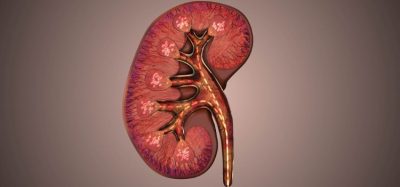February Pharmacovigilance Risk Assessment Committee (PRAC) meeting highlights
Posted: 15 February 2021 | Hannah Balfour (European Pharmaceutical Review) | No comments yet
The EMA’s Pharmacovigilance Risk Assessment Committee (PRAC) began two new reviews and wrote guidance for healthcare professionals on the potential side effects of Strimvelis, Venclyxto and Zolgensma.


In their February meeting, the European Medicines Agency’s Pharmacovigilance Risk Assessment Committee (PRAC) concluded that the use of Veklury in COVID-19 patients is not associated with kidney problems, among several other decisions.
Amfepramone and obesity review
The PRAC has begun a review of obesity medicines that contain amfepramone. Amfepramone medicines are authorised in some EU countries as treatment for patients with obesity (body mass index of at least 30 kg/m2) for four to six weeks and no longer than three months. Concerns surrounding heart problems, high blood pressure in the lungs, use of the medicine for longer than three months, exceeding the maximum recommended dose and use during pregnancy despite recommendations against such use were raised to the committee. EMA said it will communicate the PRAC’s recommendations once the review has concluded.
Veklury not associated with kidney problems
The PRAC has assessed all available information surrounding reports that Veklury (remdesivir) can cause acute kidney injury (AKI) in patients with COVID-19. The review included data provided by the marketing authorisation holder, analysis of reported adverse reactions, data from clinical trials and published scientific literature. After taking all the data into consideration, the PRAC concluded that currently there is no evidence indicating that the reported kidney problems are associated with the use of Veklury. However, the risk of AKI will continue to be carefully monitored.
PRAC starts new safety signal procedure with Veklury
After reports from AIFA (the Italian Medicines Agency) that Veklury can cause sinus bradycardia (slow heartbeat with a resting heart rate of 60 beats per minute or less), PRAC has decided to request an in-depth evaluation of all available data, including reports from Eudravigilance, clinical trials and the published literature.
The committee has already assess reports of other cardiac adverse events (arrythmia(s), hypotension and shock) in patients treated with Veklury .
At this stage, it is not yet clear whether there is a causal association between Veklury and the reports of sinus bradycardia, the reports are simply a safety signal which warrants further investigation.
New safety information for healthcare providers
Strimvelis gene therapy could cause cancer
Doctors are to be informed that the use of the gene therapy Strimvelis could lead to genetic mutations with the potential to cause cancer. Strimvelis is a medicine to treat severe combined immunodeficiency due to adenosine deaminase deficiency (ADA-SCID). Doctors are advised to monitor patients long-term for cancerous changes with at least annual visits for the first eleven years and then at 13- and 15-years post treatment with Strimvelis.
Venclyxto and tumour lysis syndrome
A direct healthcare professional communication (DHPC) will inform doctors about new recommendations and measures for the mitigation of the risk of tumour lysis syndrome (a serious complication with rapid break down of cancer cells) in patients treated with Venclyxto (venetoclax) and the related updates to the summary of product characteristics (SmPC).
Managing risk of thrombotic microangiopathy with Zolgensma
A DHPC will warn doctors of the risk of thrombotic microangiopathy (an acute and life-threatening condition characterised by thrombocytopenia, haemolytic anaemia and acute kidney injury) following administration of Zolgensma (onasemnogene abeparvovec), a gene therapy for patients with spinal muscular atrophy.
The DHPCs for the gene therapies Strimvelis and Zolgensma will now be sent to the Committee for Advanced Therapies (CAT) and then to EMA’s human medicines committee (CHMP) for a final opinion. The DHPC for Venclyxto will go directly to the CHMP. Following the CHMP decision, the DHPCs will be disseminated to healthcare professionals by the marketing authorisation holder.
Related topics
Drug Safety, Gene therapy, Regulation & Legislation, Therapeutics, Toxicology
Related organisations
EMA's Committee for Advanced Therapies (CAT), EMA's Committee for Medicinal Products for Human Use (CHMP), EMA Pharmacovigilance Risk Assessment Committee (PRAC)
Related drugs
Amfepramone, Strimvelis, Veklury (remdesivir), Venclyxto, Zolgensma (onasemnogene abeparvovec)









